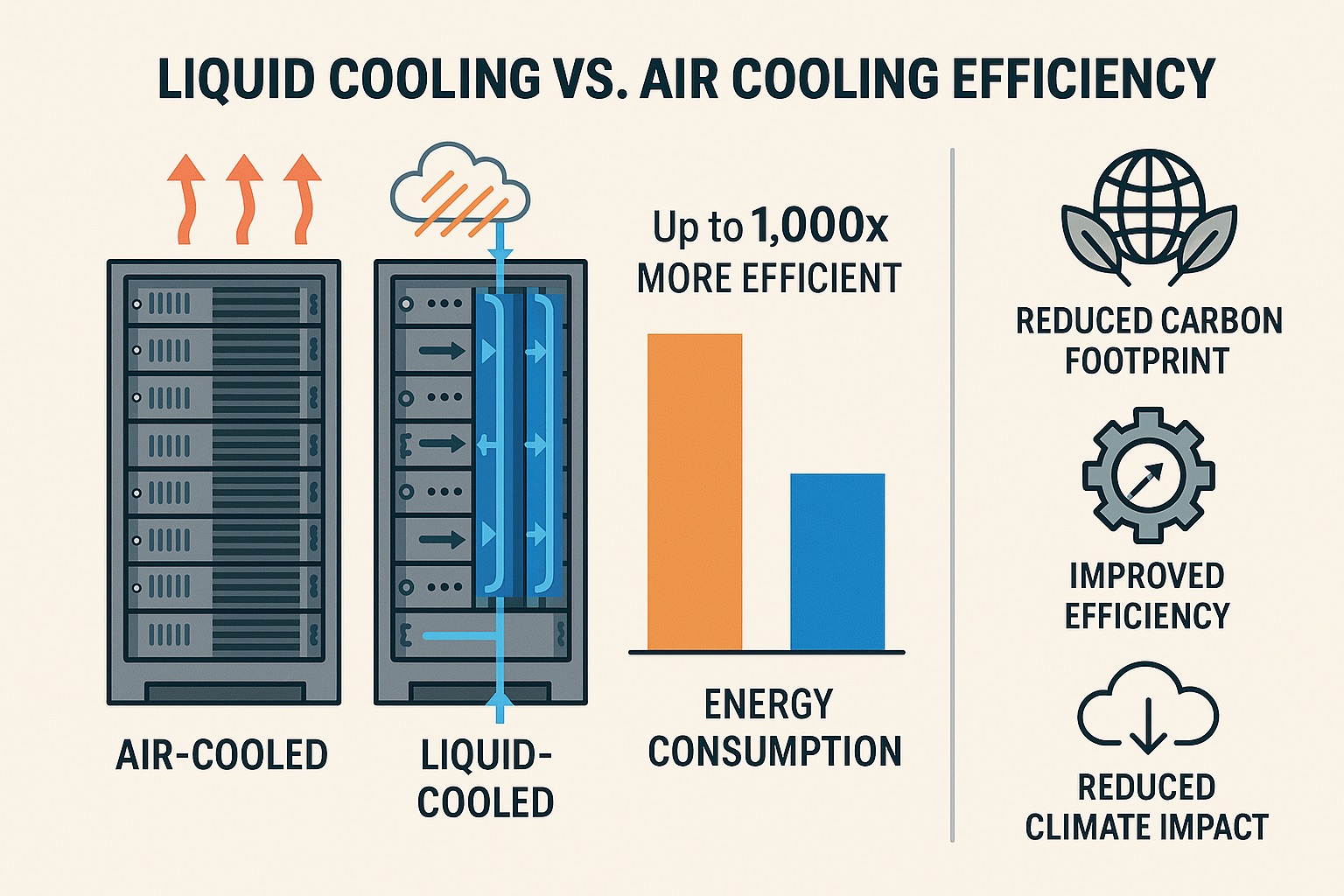Accton Optimizes Product Design to Reduce Environmental Impact
ESG Spotlight / Environmental 🌄 /Product Planning and R&D Center/ July 30th, 2025
In today’s rapidly digitizing world, data centers have become the backbone of artificial intelligence and cloud computing. However, these high-performance systems also face increasing environmental pressure from rising energy consumption and equipment waste.
Aligned with the ISO 14001 Environmental Management System, Accton adopts a life-cycle-thinking approach, evaluating environmental impact at every stage of a product’s life cycle. From the design phase, we focus on three key principles: energy efficiency, multi-functionality, and modularity. By doing so, we reduce resource waste and enhance sustainability, creating network equipment that meets future demands while minimizing environmental impact.
Energy-Efficient Design: Introducing Liquid and Immersion Cooling to Reduce Operational Energy Use
In data centers, the majority of energy is consumed during the operational phase, primarily by computing equipment and cooling systems, far more than during manufacturing or transportation. Improving efficiency at this stage offers the greatest potential for reducing overall environmental impact.
To address this, Accton is actively introducing liquid cooling and immersion cooling technologies to replace traditional air-cooling systems. These advanced thermal solutions tackle the increasing heat generated by high-density, high-power servers. The result is a significant reduction in power consumption for thermal management, allowing more energy to be dedicated to computing performance. This not only enhances system efficiency but also improves the Energy Use Intensity (EUI) of data centers.
We also recognize that coolant fluids require proper handling after use to truly close the resource loop. That’s why we continue to explore feasible solutions for reuse and responsible treatment, ensuring long-term sustainability from design to disposal.
Versatile Integration Design: Do More with One, Waste Less
As networking hardware continues to evolve toward streamlined yet diverse deployments, multi-functional integration has become a key strategy for resource optimization.
Some switch models from Accton adopt a multi-purpose sliding-port design, allowing flexible configurations tailored to specific use cases, eliminating the need for separate devices across different scenarios.
With this approach, a single unit can meet multiple requirements, reducing material usage and manufacturing carbon footprint while also lowering overall procurement and maintenance costs.
Modular Design: Built to Last, Designed to Repair
When a device must be discarded entirely due to the failure of a single component, it leads to wasted resources and contributes to the growing e-waste problem.
To address this challenge, Accton incorporates modular design principles into product development, starting with key components like fans, which are now hot-swappable. If a part fails, only the affected module needs to be replaced.
This approach significantly enhances serviceability and upgrade flexibility, extending product lifespan while reducing the number of discarded units and minimizing e-waste. It’s a practical step toward circularity and environmental sustainability.
A Long-Term Environmental Commitment, Engineered into Design
Reducing environmental impact and carbon emissions shouldn’t be an afterthought, it must begin at the source: product design. Guided by ISO 14001 principles, Accton integrates environmental considerations into the design phase, continually improving product performance while advancing toward resource circularity. This approach reflects our long-term vision: driving technological progress that benefits both people and the planet.
Achievements
| Compared to air cooling, immersion cooling enables significantly more efficient heat transfer, up to 2.4 times higher thermal conductivity. |
|---|
| While traditional air cooling typically yields a Power Usage Effectiveness (PUE) of around 1.6, immersion cooling can reduce the PUE to as low as 1.1. |
| Accton is certified under the ISO 14001 Environmental Management System. |
Related Page(s)
The Cornerstone of Operational Resilience: From Crisis Awareness to Collective Action
summer2025-10-29T09:31:35+08:00October 29th, 2025|
From Art to Action: Accton’s Commitment to Marine Conservation
summer2025-10-01T13:31:53+08:00September 30th, 2025|








